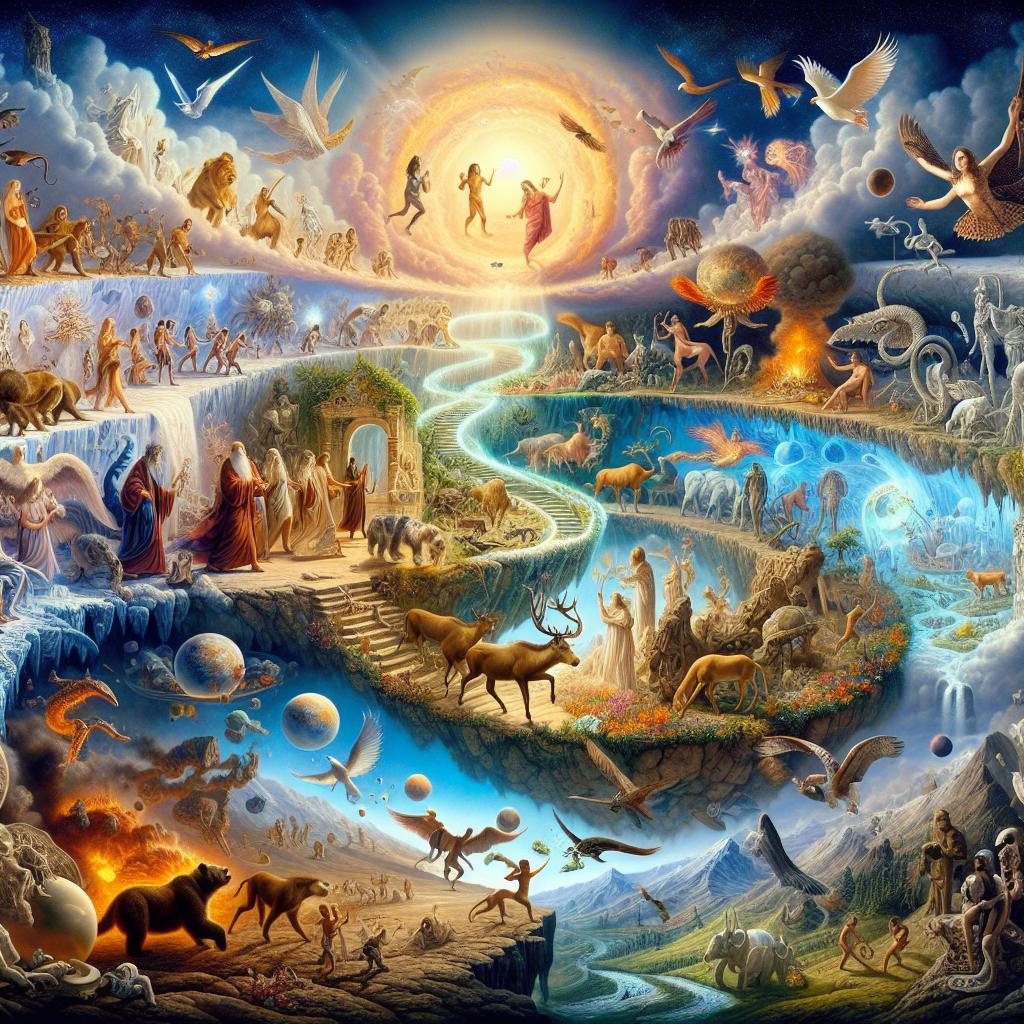
Unveiling Gerald Schroeder's Innovative Day-Age Theory for Christians
Published: 15 May 2024
Gerald Schroeder and His New Variation on the “Day-Age” Theory: Part 1
Several months ago, Dr. Gerald Schroeder appeared on the Zola Levitt TV program, discussing his perspective on the creation account in Genesis. Dr. Schroeder, a physicist from MIT who has been living in Israel for two decades, claims to believe in a literal interpretation of Genesis but presents a unique variation of the "day-age" theory.
Dr. Schroeder's theory shares similarities with previous versions of the day-age theory, which assert that the world is as old as evolutionists claim (around 15 billion years) but can be divided into six extended periods of time referred to as "days." However, he introduces his own interpretation by assigning specific durations to each day based on the expansion of the universe.
According to Dr. Schroeder, the first day of creation corresponds to a time period of 8 billion years when the universe was initially very small. As the universe expanded, subsequent days became shorter: 4 billion years for the second day, 2 billion years for the third day, 1 billion years for the fourth day, 500 million years for the fifth day, and 250 million years for the sixth day. In total, Dr. Schroeder's theory suggests a timeline of approximately 15.75 billion years.
It's important to note that Dr. Schroeder does not provide any scientific or biblical basis for these specific duration choices. Instead, readers are expected to accept his redefinition of the word "day" without considering biblical evidence that suggests each creation day was similar in length to an ordinary day today (Genesis 1:5; Exodus 20:8–11).
Furthermore, Dr. Schroeder's calculations appear inconsistent with one another. He divides the 15 billion-year period by a factor of expansion defined as a million million (1,000,000,000,000) and then multiplies it by 365 to calculate the number of days. According to his method, the answer should be approximately 6, confirming his theory. However, the actual result is 5.475, indicating that the sixth day has not yet concluded. Consequently, according to Dr. Schroeder's theory, animals and humans should not exist.
Dr. Schroeder argues that since we are currently in the "sixth day" of creation, the seventh day of rest, known as the Sabbath Day, has not yet occurred. However, Genesis 2:1–2 clearly states that God "ended his work," "rested," and "blessed and sanctified" the seventh day. These statements are all in the past tense, raising questions about Dr. Schroeder's claim that we are still in the sixth day.
Additionally, Dr. Schroeder suggests that the Hebrew root word for "evening" is "chaos" and for "morning" is "order." However, he fails to provide any support from Hebrew scholars for this view, which many experts consider unfounded. The Hebrew word for "evening" is ('ereb), seemingly unrelated to the term "chaos" (tohu) that scholars would expect. Similarly, the word for "morning" (boqer) does not have an evident connection to the expected term for "order" (seder). Without proper evidence for these alleged Hebrew word relationships, readers should approach Dr. Schroeder's claims with skepticism.
If we were to accept Dr. Schroeder's argument about chaos and order in each day of creation, it would imply a repetitive cycle of chaos-to-order-to-chaos-to-order for each day. However, this interpretation raises further questions and challenges.
In Dr. Schroeder's creation scenario, he places the creation of the sun on the second day. However, he suggests that the atmosphere was only translucent at that time, making the sun and other celestial bodies invisible from Earth until the fourth day when the atmosphere became transparent. In contrast, Genesis 1:14–19 explicitly states that God created the sun and moon on the fourth day and set them in the firmament. This contradicts Dr. Schroeder's interpretation, which aligns with a common claim of the old day-age theory.
Why This Matters: Dr. Schroeder's variation on the day-age theory presents an alternative perspective on reconciling the biblical account of creation with scientific estimates of the universe's age. While he claims to support a literal interpretation of Genesis, his theory redefines the word "day" and alters the sequence of events in the creation narrative. This raises questions about the consistency of his interpretation and its alignment with both scientific evidence and biblical texts.
Think About It: 1. How does Dr. Schroeder's theory challenge traditional understandings of the creation account? 2. What evidence or reasoning does Dr. Schroeder provide to support his specific duration choices for each day of creation? 3. Consider the biblical passages mentioned (Genesis 1:5; Exodus 20:8–11; Genesis 2:1–2). How do they contribute to the discussion around the length and sequence of creation days? 4. Reflect on Dr. Schroeder's interpretation of chaos and order in each day of creation. What are potential implications and challenges of this perspective? 5. How does Genesis 1:14–19 conflict with Dr. Schroeder's placement of the creation of the sun? How might this impact his overall theory?
